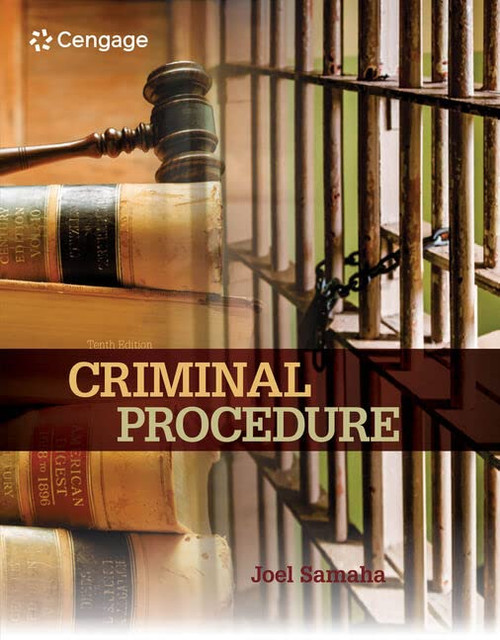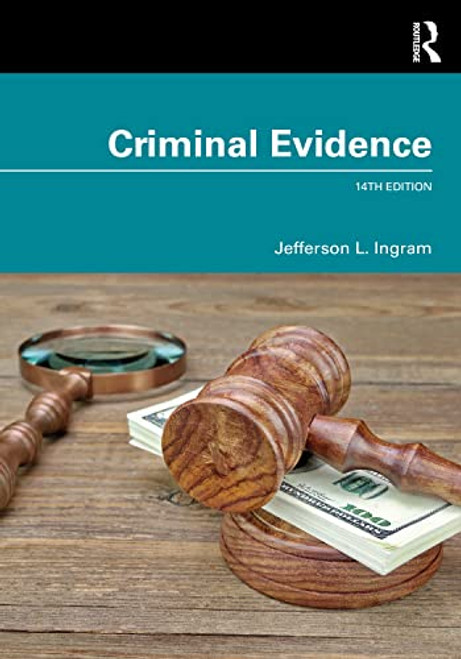Much of the work of the modern law enforcement officer in-volves gathering evidence that is admissible in court. Success in this effort requires a thorough knowledge of courts and the rules of evidence. Collection and presentation of legal evidence is the foundation of justice, and the manner in which these objectives are attained may seriously affect the life, liberty, and property of others, as well as the reputation of the officers and the agencies they represent. Officers have the responsibility to collect all available evidence in a lawful manner, recognizing that their duty is to secure conviction of the guilty and exoneration of the innocent.
In developing the book, the authors draw from a unique blend of experience as attorney, judge, legal writer, prosecu-tor, appellate advocate, police officer, criminal investigator, administrator, and teacher.
For the practitioner and the student of criminal justice, this book clearly and concisely presents the rules of evidence that guide the enforcement of criminal law in its two most important stages--investigation and trial.
About the Authors
Julian R. Hanley has practiced as both a district attorney and a public defender, and he was a judge in Wyoming County, New York, where Attica Prison is located. Wayne W. Schmidt is Executive Director of Americans for Effective Law Enforce-ment, Inc. Larry D. Nichols is a retired Professor of Law En-forcement Technology, and was Coordinator of the Police Academy at South Plains College, Levelland, Texas.
Special Features of the Book
A complete glossary of terms
A thorough index to topics covered
Appendix on rules of evidence
Features of the Instructor s Guide
Sixteen lesson plans provide step-by-step instructions for covering the key topics and the major points of each topic
About twenty-five review questions for each lesson
Two mid-term examinations with fifty questions each
A one-hundred-question final examination
Contents
1. The Criminal Justice System.
2. The American Court System.
3. Arrests, Searches, and Seizures.
4. Interrogations, Confessions, and
Nontestimonial Evi-dence.
5. Pretrial Procedures.
6. Discovery and Privileged
Communications.
7. Prosecution and Defense.
8. The Trial.
9. Rules of Evidence.
10. Examination of Witnesses.
11. Articles and Exhibits of Evidence.
12. Opinion Evidence
13. Hearsay Evidence.
14. The Jury Process and Verdict.
15. Sentencing.
16. Appeals Before the U.S. Supreme
Court.
Introduction to Criminal Evidence and Court Procedure
Brand: McCutchan Pub Corp
$21.50 - $26.40
- UPC:
- 9780821107386
- Maximum Purchase:
- 3 units
- Binding:
- Hardcover
- Publication Date:
- 2011-04-01
- Author:
- Julian R. Hanley;Wayne W. Schmidt;Larry D. Nichols
- Language:
- english
- Edition:
- 7th












